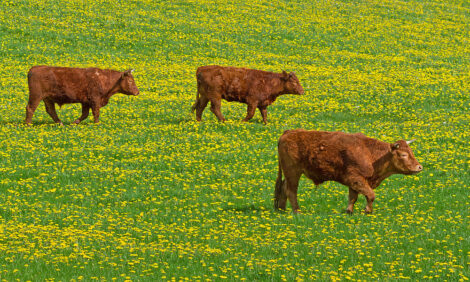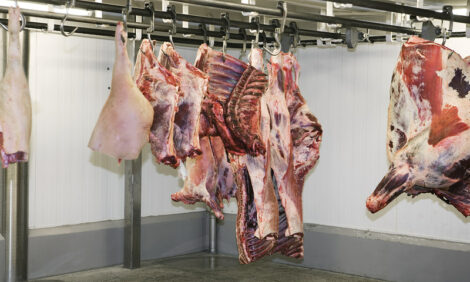



Project: Reaping Rewards of Both DDGS and Forage
LOWA, US - With corn ethanol production increasing the demand for corn and competing for acres available for grazing, a project of the Leopold Center for Sustainable Agriculture looks at how cattle producers can reap the benefits of both systems.The Leopold Center’s Ecology Initiative is funding a multi-year research and demonstration project of ISU extension beef specialist Dan Loy. He is exploring the costs and advantages of feeding dried distillers grains (DDGs) as a supplement with forage or pasture-based systems.
When ethanol is produced, the starch is stripped from the corn kernels during fermentation and what remains is a finely ground material high in protein and energy, which makes it a valuable feed for livestock. Loy is studying cattle performance, pasture utilization and pasture quality of grazing systems that use DDGs as a supplement in addition to normal feeding routines. He is also testing delivery methods, such as pellets or cubes, both of which have presented obstacles.
Loy said feeding DDGs can be a cost-effective opportunity for small and medium-sized beef operations. “Our goal is not to compete with others in this area but to coordinate with those efforts and develop relationships that transfer successful technologies to the small and medium-sized beef producers," he said.
One objective of feeding DDGs is to extend pasture supplies without over-grazing, which poses the question, “How much of this feed is needed to get cattle to eat less forage?” Loy has found that in order for cattle to eat less forage they must be fed approximately 1 per cent of their body weight in DDGs.
“It’s important to find an ecologically sustainable and cost-effective way to utilize DDGs so beef producers can continue to graze their cattle on pasture while still remaining profitable,” said Jeri Neal, Ecology initiative leader who oversees this project.
Three Iowa beef producers are working with Loy as part of this research: Henry Langstraat of Otley, Ron Dunphy of Creston and Bruce DeBruin of Leighton. Two beef field specialists also helped lead the project, Joe Sellers and Byron Leu.
TheCattleSite News Desk


